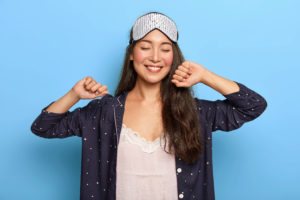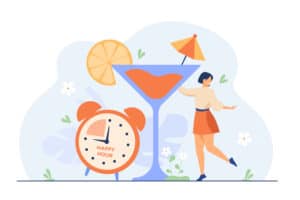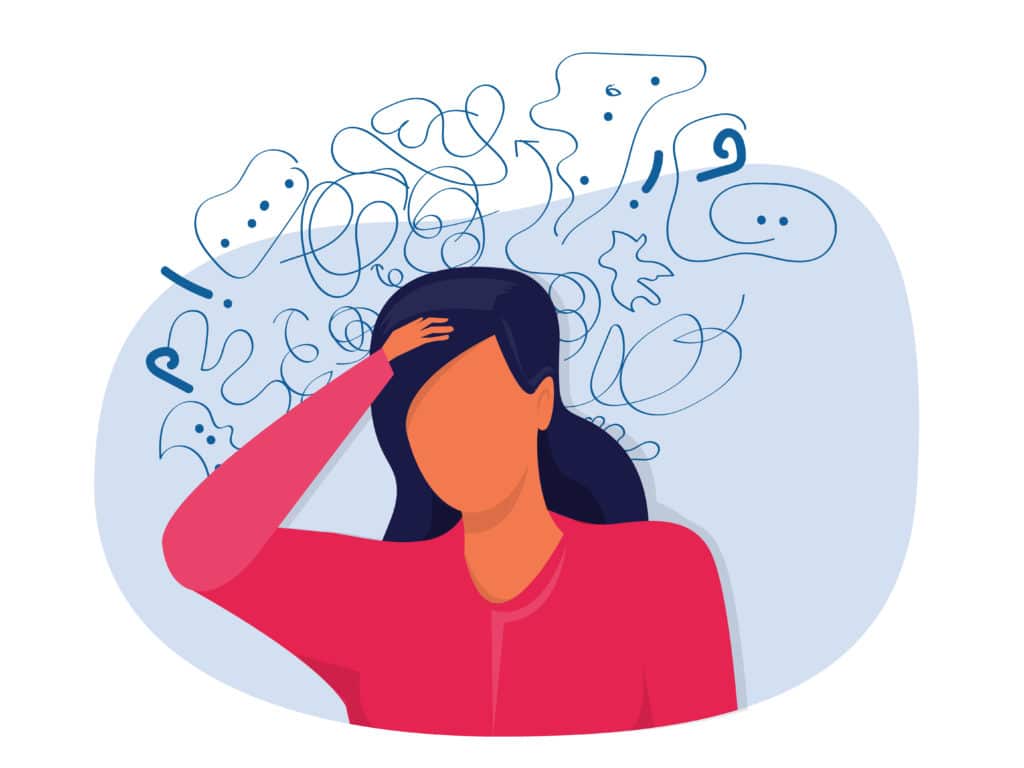
Alcohol is a common substance for people looking to feel calmer – this has led to it’s popularity as a pre-sleep beverage. However, the way your body metabolizes alcohol means that it’s actually extremely disruptive to good sleep.
Here at Rested Health, we want to teach you the habits that have the least effort with the most reward. So, without further ado, here’s how you can enjoy alcohol without letting it disrupt your slumber!
SKIP THE NIGHTCAP FOR BETTER SLEEP
Action Plan
Stop drinking at least 4 hours before bedtime!
The Problem:
Any alcohol within 4-6 hours of bedtime wreaks havoc on your sleep and disrupts your mood, reduces energy, and causes inflammation
How to do it
Skip the nightcap! Tap out 4 hours before bedtime. Even just one drink can ruin your sleep.
Substitute in sparkling water with lime (or other fun mocktails)
The Science
Alcohol mimics an important chemical messenger in your brain called GABA. This causes a sedative effect in your body which is the main reason that nightcaps are so popular. While alcohol can make you feel drowsy initially, as it gets metabolized, it causes the opposite effect.
Research has found that consuming alcohol even 6 hours before bed increases heart rate and reduces sleep quality and quantity.
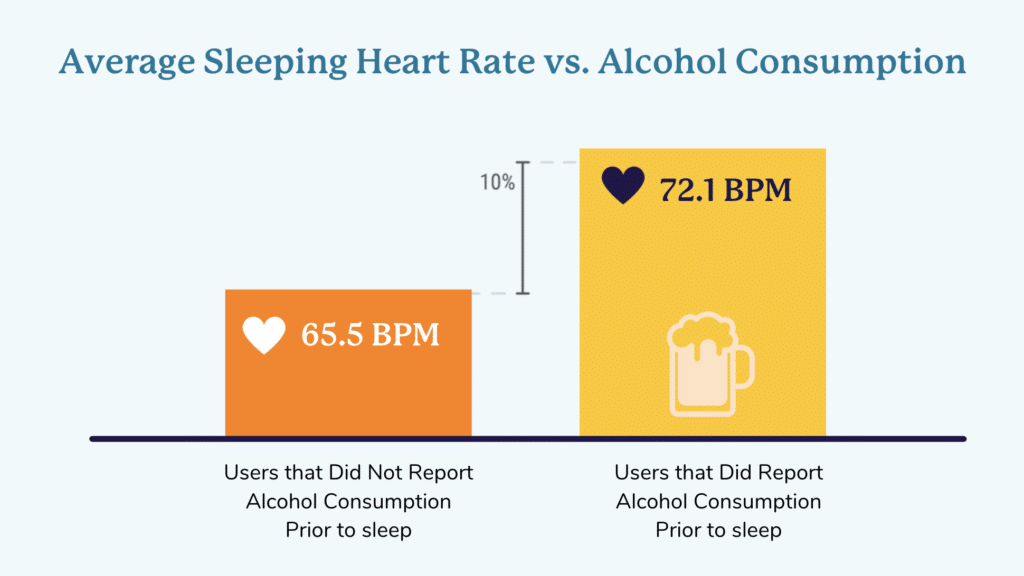
As your body breaks down alcohol, your brain responds to this disruption by blasting an excitatory chemical messenger called glutamate. Excitatory chemicals aren’t exactly helpful for sleep. As a result, alcohol leads to disruptions in your brain chemistry and poor sleep.
Alcohol is also a diuretic, which means it causes your body to lose extra fluid. This leads to more bathroom breaks and can exacerbate snoring and sleep apnea.

The "Whoops I drank" Plan
Not every night can be perfect! It’s possible to do a little damage control if you end up drinking before bed. Remember to hydrate, take a multivitamin, and try a supplement like dihydromyricetin (DHM) immediately after drinking to reduce alcohol’s negative side effects.
Health Benefits
- Prevents alcohol from waking you up in the wee hours of the morning.
- Reduces sleep-disordered breathing.
- Boosts sleep quality (better immunity, skin, cognitive function, and more).
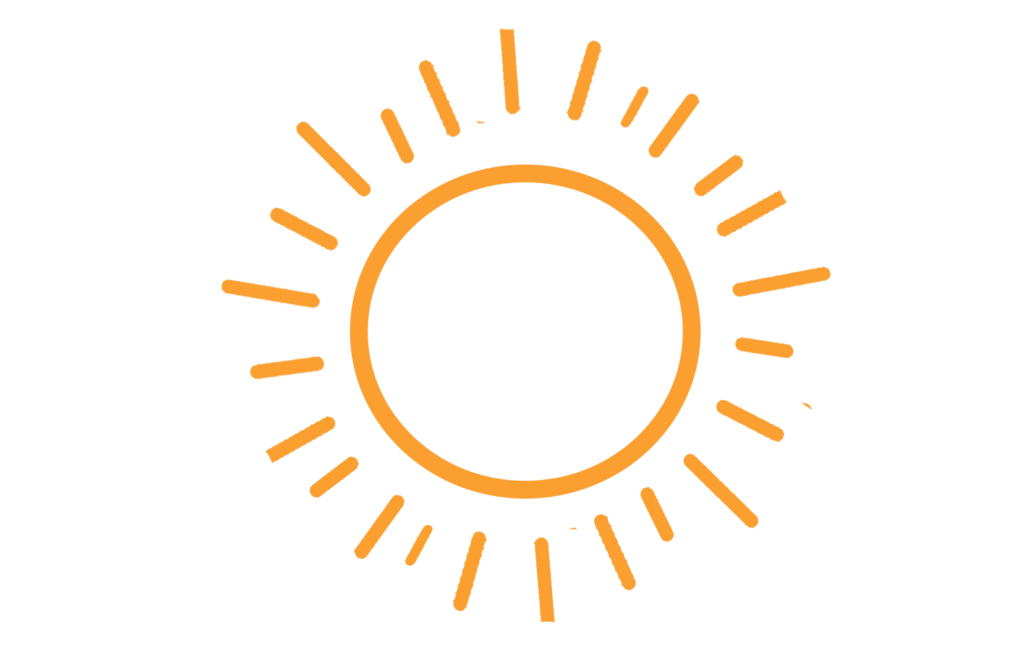
Tips
- Drink one glass of water for every alcoholic beverage – hydration helps
- Switch to non-alcoholic beer! It can help you sleep better due to the hops
- Have fun with mocktails- soda and a twist of lime are a great substitute





